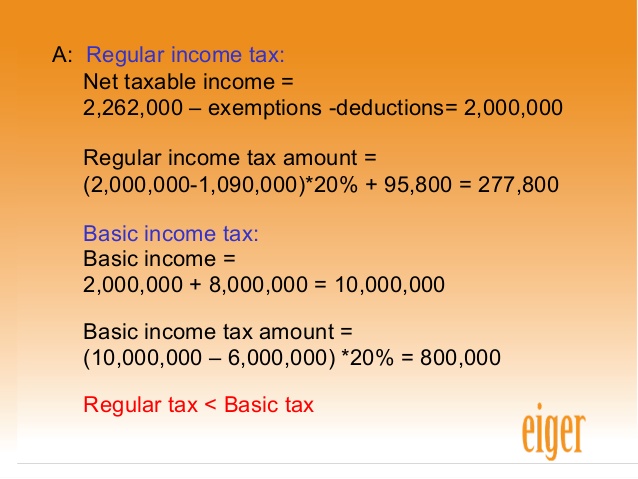Contents
ABCL or any of its employees are in no way liable for the use of the information by you, when making any decision or investing or trading through any investment vehicles or ABC Companies, or any other third party which may be engaged in offering of these services. Your right to use the facilities is personal to you; therefore, you agree not to resell or make any commercial use of the facilities. In addition, the Website welcomes your feedback as a user of the facilities.
Companies first offer their securities in the primary market to those with enough funds and an investment plan. Thereafter, the listing of securities takes place in a stock exchange for trading in the markets. National Stock Exchange and Bombay Stock Exchange are the stock exchanges in India.
Liquidity
Investor’s funds remain relatively safe due to heavy regulations governing asecondary stock market. The regulations are stringent as the market is a source of liquidity and capital formation for both investors and companies. The former is essentially a platform for buyers and sellers to arrive at an understanding of the rate at which the securities are to be traded. The information related to pricing is put out in the public domain, including the bidding price of the offer. Transactions can be entered into at any time, and the market allows for active trading so that there can be immediate purchase or selling with little variation in price among different transactions.
- It provides financing to the existing companies for facilitating growth and expansion.
- Secondary market preserves active trading so that investors can buy or sell right away at a cost that varies little from transaction to transaction.
- In another example, if you buy a stock of Reliance Industries Limited , you are dealing only with another investor who owns shares in RIL.
- Investors’ profit margin may experience a dent due to brokerage commissions levied on each transaction of buying or selling of securities.
- The secondary market is known to provide liquidity to all the traders and any investor or seller who needs money can sell their securities to any number of buyers.
The client is desirous of investing in units of mutual fund schemes through the BSE STAR MF. Dealers own the inventories of stocks, and these stocks are being sold and bought to receive profits. Secondly, there is no time wastage, and secondly, the dealers can assist guarantee the inventories of stock they hold. In this type of market, the buyers and sellers get into a negotiation for the best price. The person who proceeds as an authority between the buyers and sellers is the expert and helps in proper dealing and filling orders by public customers. Is owned by Aditya Birla Management Corporation Private Limited and the same is used herein under the License by Aditya Birla Capital Limited and its subsidiary companies (collectively hereinafter referred to as “ABC Companies”).
Primary Market and Secondary Market
It provides you with a tabular representation of the current market position of the selected equities. Each row contains information on a single share, such as the script name, the most recent traded price, the most recent traded quantity, the best bid and offer rate, total transacted volume, and so on. You can customize the market monitor window by selecting which columns you want to see and which ones you don’t. You can also alter the appearance of the table by changing the colours, size, and whether or not to employ a divider between the rows and columns. While putting in a request with an agent for purchasing and selling shares, one needs to tell the representative precisely which stock one wishes to purchase or sell, at what cost and the number of them.
Investors buy and sell shares, bonds, debentures, commercial papers, and treasury bills in this auction-style or dealer environment. The secondary markets can be either an auction marketplace like the stock exchange or over-the-counter . In the stock market, traders haggle over prices for their desired goods.
This results in a fully covered order being placed on the exchange allowing you to both automatically book profits as well as automatically cover losses. A stop order is an order for which a trader has specified a stop price- that is, a price that triggers the conversion of a stop order into a market order. For a sell order, https://1investing.in/ the trader’s order may not be filled until a trade occurs at or below the stop price. If the market price subsequently rises above the sell order’s stop price before the order trades, the order remains valid. For a buy order, the trader’s order becomes a market order only after a trade occurs at or above the stop price.
What is the difference between Primary and Secondary Market? | Primary Market vs Secondary Market
The Website specifically prohibits you from usage of any of its facilities in any countries or jurisdictions that do not corroborate to all stipulations of these Terms of Use. In case of any dispute, either judicial or quasi-judicial, the same will be subject to the laws of India, with the courts in Mumbai having exclusive jurisdiction. You are advised to be cautious when browsing on the internet and to use good judgment and discretion when obtaining information or transmitting information. From this Website, users may visit or be directed to third party web sites.
In a primary market, new shares and bonds are offered to the public for the first time via an initial public offering . The secondary market, on the contrary, refers to exchanges such as BSE or New York Stock Exchange or NASDAQ where stocks are traded. The secondary market is known to provide liquidity to all the traders and any investor or seller who needs money can sell their securities to any number of buyers. Any development in the securities leads to price fluctuation in the market and the market adjusts itself to the price of the new securities.
The primary market provides financing to the new and the old companies for their expansion and diversification while the secondary market does not provide financing to companies as they are not involved in any transactions. The amount that is received from the securities becomes capital for a company whereas; in the case of the secondary market, the same reflects the income for investors. The securities in the primary market can only be sold once, while in the secondary market sale and purchase is a continuous process. When two or more diverse financial instruments are combined is known as hybrid instruments. It is available as loan securities which may be converted into equity shares after a programmed period. An organized stock exchange offers the investors a place to settle their holdings, i.e. mean securities can be sold in the stock trades at any time.
Returns generated from debentures are thus dependent on the issuer’s credibility. Reports appearing in several business papers have alleged that there has been a “default of Rs. 2000 crores” in the headline. Firstly, because if there is a default in our business, as stock broking is not a line of business where the term default is relevant, and the SEBI order itself neither mentions a default nor an amount of Rs 2000 crores. We want to reiterate once again that nowhere in the SEBI order has an amount of Rs 2000 crores been mentioned, and that this number together with the word default is extremely misleading and damaging to our reputation.
The primary market is also known as a ‘new issue market’ and the secondary market is known as an ‘after issue market.’ Depending upon the demand and supply of the securities traded the prices in the secondary market vary. A secondary market refers to the stage where investors can freely buy and sell shares without the intervention of the what is meant by secondary market issuing organization. In these kinds of transactions among investors, the issuing company does not participate in income generation. Knowing how the secondary markets work is a key to understanding how stocks, bonds and other securities trade. Without it, the capital market would be much harder to navigate and much less lucrative.
Aditya Birla Capital Limited is the holding company of all financial services businesses. In delivery trading, on the other hand, the position is not closed on the same day, and the shares are purchased and held in a Demat account. You can hold the shares for a few days, months, or even years until you achieve your goal price. The broker will offer you a login ID, but you will need to create a password. For the sake of your account’s security, you should change your password on a regular basis.
Primary vs Secondary Share Markets
Therefore, you can make the most out of your money by investing it wisely. The flow of investment capital via disinvestment and reinvestment helps ensure efficient use of resources while also reducing economic uncertainty. It leads to growth within individual industries and even across sectors at large. In this type of secondary market, one will not find direct contact between the seller and the buyer of the security. Counterparty risk, in this case, is almost zero as the exchange is a guarantor. In Exchanges, there is a comparatively high transaction cost because of the exchange fees and commission.
You will have access to various reports linked to your market activities at any moment. The order book, trade book, margin, net positions, exercise book, and portfolio are all included in these reports. These reports are also dynamically updated as soon as a transaction is completed, eliminating the need to refresh them.
While the primary market is where the securities are created, it is in the secondary market where there are traded. Whereas, these securities are traded by the investors in the secondary market. National Securities Depository Limited and Central Depository Services Limited are the two depositories in India . As a result, depositories demand a nominal fee in exchange for this service. The depository participants do not charge investors directly; instead, your broker deducts funds from your bank account.
As for bonds, they are essentially a contract between two parties, whereby a government or company issues these financial instruments. As investors buy these bonds, it allows the issuing entity to secure a large amount of funds this way. Investors are paid interests at fixed intervals, and the principal is repaid on maturity.
Safety cost is precise by the transactions that run from investors demand and supply. This market typically makes their transactions price public that assists investors to make better decisions. The Facilities Provider, ABC Companies or any of its third party service providers and processor bank/merchants etc. shall not be deemed to have waived any of its/their rights or remedies hereunder, unless such waiver is in writing.
Your consent to receive communications electronically is valid until you revoke your consent by notifying of your decision to do so. If you revoke your consent to receive communications electronically, the Facilities Provider shall have the right to terminate the facilities. The stock exchange and over-the-counter market are the two types of secondary market. Public issue, offers for sale, private placement, rights issue, and e-IPOs are the sources of raising funds in the primary market.





Deja tu comentario